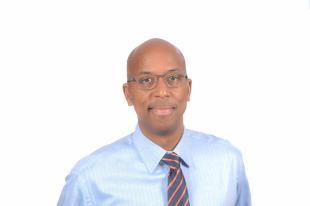UF ESSIE professor to deliver prestigious National Academy lecture
How do you safeguard American diplomats from hurricanes and tornadoes? University of Florida engineering professor and Jefferson Science Fellow David Prevatt has spent decades answering that question, and next week he will share his findings at a prestigious National Academy of Sciences distinguished lecture series in Washington, D.C.
Prevatt is among 206 faculty nationwide to serve as a Jefferson Science Fellow since the program’s founding in 2003 — a rare distinction among tens of thousands of STEM faculty at U.S. universities. Through the fellowship, he works with the U.S. Department of State’s Bureau of Overseas Buildings Operations, also know as OBO.
"My work has aided my OBO team to understand and interpret wind engineering knowledge and develop design load provisions of U.S. building codes, and to use it to evaluate and compare all global risks. Then we can make recommendations on policy,” he said. “We do this in a way that provides guidance for the future engineers who could be designing buildings in any one of 280 countries.”
Set for 11 a.m. on Tuesday, Aug. 19, at the National Academy of Sciences, the talk is open to the public and available to watch via Zoom. Prevatt’s program, “Diplomatic Wind Hazards and Design: Integrating Science, Engineering and Communication,” examines how wind-engineering expertise, extreme-value hazard modeling, and evaluation of the State Department’s building inventory inform tornado-risk mitigation policy aligned with U.S. building codes to safeguard diplomats and property worldwide.
“U.S. diplomatic missions face normal winds, catastrophic hurricanes and even tornadoes that threaten operations and safety,” Prevatt noted. “This talk illustrates how we combine our engineering research and building-code analysis to translate into concrete policies that protect lives and infrastructure.”

The event comes as hurricane season is ramping up, and much attention is paid to structural integrity amid storms. And Prevatt is no stranger to the nation’s capital. He works there as part of his fellowship and has testified before U.S. congressional committees after major storms in 2005, 2008, 2013, and 2022.
“Engineering should not be an afterthought when it comes to policy establishment,” he said. “My research has enabled increased understanding how extreme winds cause damage to communities and how through proper engineering communities can mitigate future damage. The
knowledge when translated into building codes facilitates application of good policy that reduces the vulnerability of our infrastructure.
Prevatt is thrilled to represent UF and bring the public into this international conversation with relatable stories and information.
“The onus is always on the research scientist/engineer, on the professor, to communicate with narratives in ways that engage the public,” he said. “I want to uplift public understanding so we can use the information intelligently. They need to see the value and witness my joy in doing this work.”
To register for online and in-person attendance, go to: https://www.nationalacademies.org/our-work/jefferson-science-fellowships
